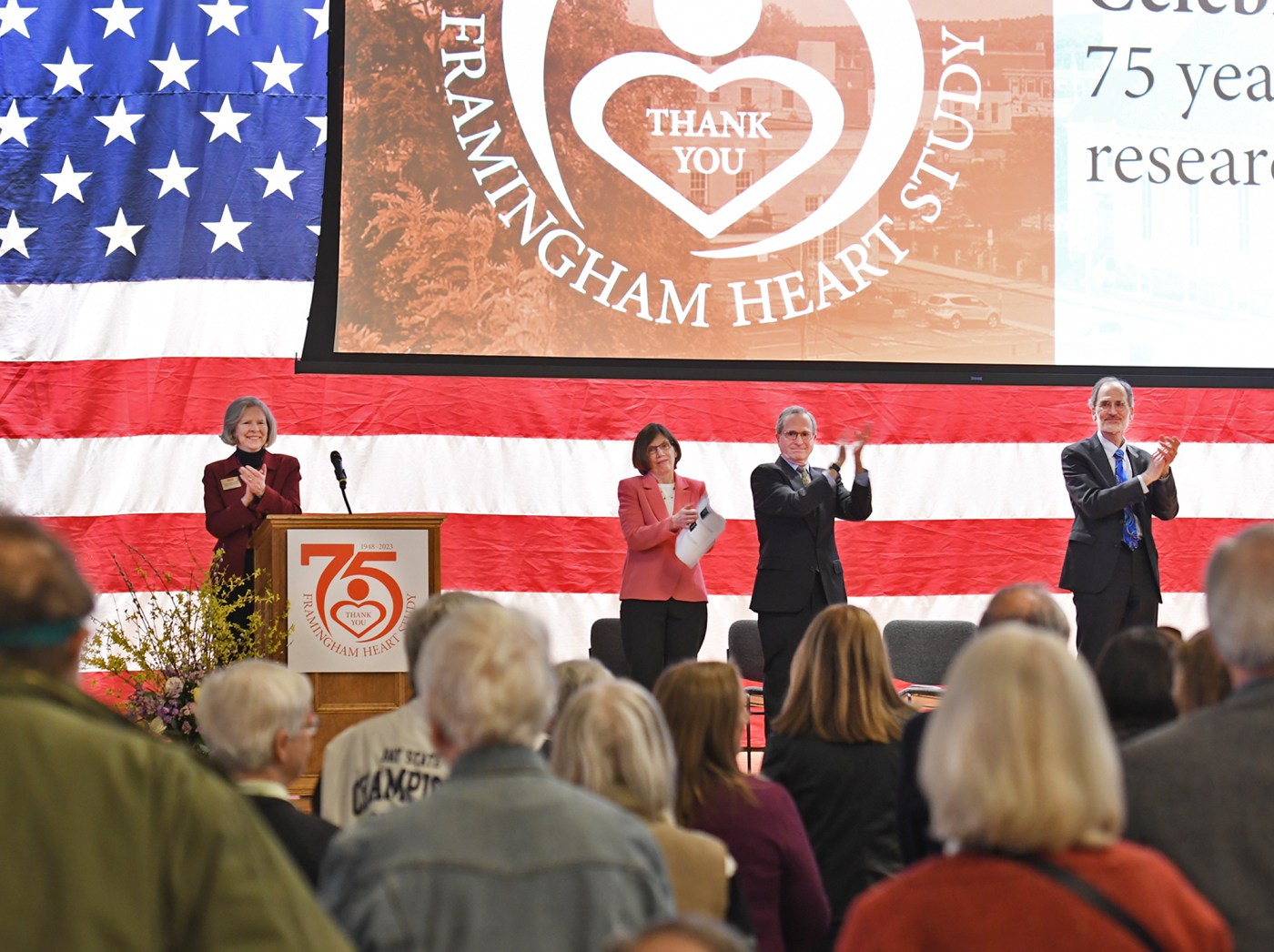
Framingham Heart Study recognizes 75 years, three generations of groundbreaking cardiovascular research
The Framingham Heart Study has now spent 75 years radically transforming how the field of medicine understands heart disease, researchers and participants recognized Monday — with three generations of participants in the small city saving and improving countless lives across the globe.
“Much of what we’ve learned specifically from this study has become common knowledge,” said Monica Bertagnolli, director of the National Institutes of Health.
“Americans, not just their doctors now understand the risk factors for heart disease, among them high blood pressure, high cholesterol, smoking, physical inactivity, unhealthy diets, unhealthy weight,” the NIH director added. “And just as important, we’ve also learned that we can change these risk factors, and if we do it saves lives.”
Researchers, doctors and participants gathered in Framingham on Monday to celebrate the 75th anniversary of the monumental research study, now the longest running cohort study in the history of biomedical research.
The study began in 1948 with just over 5,200 men and women from Framingham participating and is now on its third generation of over 15,400 participants, many of them descendants from original participants.
It has reshaped how the medical field understands heart health and cardiovascular disease, notably giving rise to the understanding of risk factors and preventative treatment.
The Framingham Heart study has become a “must read” for students in the medical field, speakers said, and is only continuing to grow and give researchers robust data to understand brain, lung, liver, kidneys, lungs and more. Public officials applauded the participants for their enormous contribution to the field.
“It’s just huge to be a part of it, to be part of history, to be part of something so worldwide,” said Philip Ottaviani, a third generation participant and City Council chair. “It put us on the map.”
Ottaviani noted that his daughter will be a part of the fourth generation, carrying on a long legacy of the study.
The study has become an integral part of the Framingham community and the local history and culture, participants said.
“My parents thought it was so important and were so dedicated to it,” said Richard Tirrell, who was recruited into the second generation of the study as a 21-year-old and has participated for nearly 60 years. “And we knew neighbors, other people who were also members and the children of members who thought it was important.”
The original generation of the study really cut a cross section of the town — “doctors and lawyers and factory workers, milk men and housewives and nuns from schools” — and so many children in his generation were sold because of the experiences and the belief of their parents, Tirrell said. It all brought together a wide ranging group in a common mission.
“It was not just us, it was a group of interrelated people who all were dedicated to the proposition that we’re doing good,” Tirrell explained.
“It’s a good thing to do,” said Anne Nicholson, an original member of the Omni Cohort of the study, which expanded the research to better study participants of minority races in 1994. “I really do love it.”
Related Articles
Four years after shelter-in-place, COVID-19 misinformation persists
Hospitals cash in on a private equity-backed trend: concierge physician care
Coward! Steward Health CEO dodges Senate hearing
‘A loss for the community:’ New England Sinai Hospital set to close
COVID and Medicare payments spark remote patient monitoring boom
The work of the study is far from over, speakers said. Though the risk of cardiovascular disease and death rates dropped by about 75% between the 1950s and 2010, the reduction hasn’t kept up since, said Dr. David Goff, NIH director at the Division of Cardiovascular Sciences and National Heart, Lung, and Blood Institute.
The trend is “quite troubling,” Goff said, with rates of heart disease going up, including for young and middle age adults. Some attribute the trend to the obesity and diabetes epidemics in the country.
“New times and new challenges call for new science,” said Goff. “The important work that’s going on here in Framingham, I would say has never been more important than it is today.”


